Find Help
More Items From Ergsy search
-

Liver disease | NHS
Relevance: 100%
-
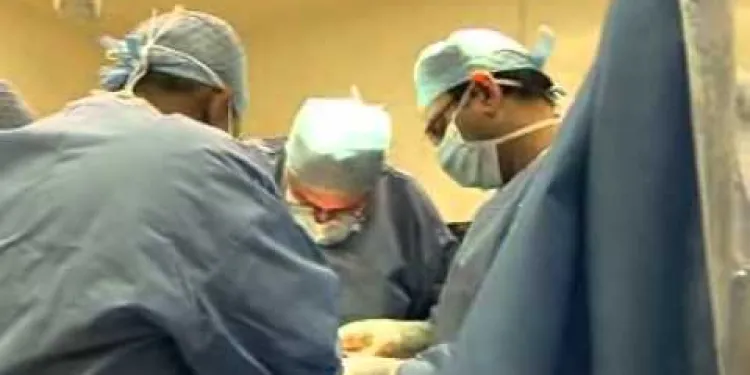
Liver transplant - Patient experience - Part 1 (Colin)
Relevance: 61%
-
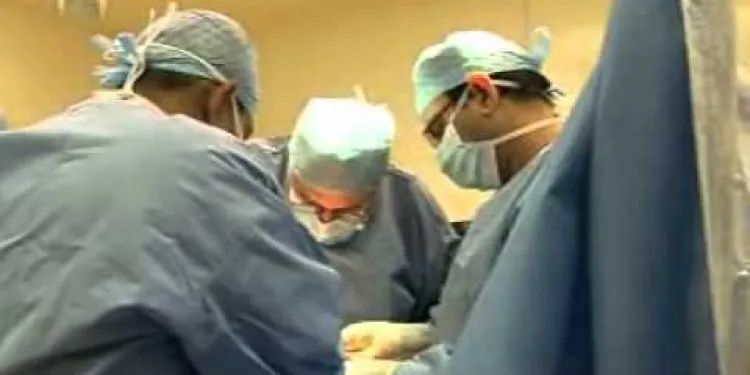
Liver transplant - Patient experience - Part 2 (Lynne)
Relevance: 57%
-

Who is at risk for flesh-eating disease?
Relevance: 43%
-

What are the symptoms of Marburg virus disease?
Relevance: 42%
-
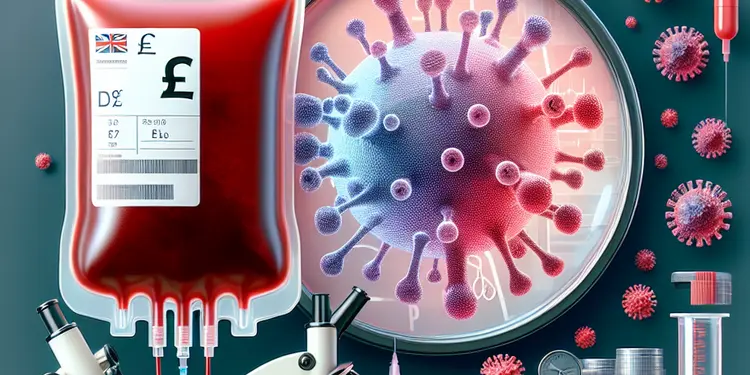
What is the most common disease transmitted by blood transfusion?
Relevance: 41%
-

What are the complications of sickle cell disease?
Relevance: 41%
-

What is Mitochondrial disease?
Relevance: 38%
-

What diseases can be spread by blood transfusions?
Relevance: 36%
-
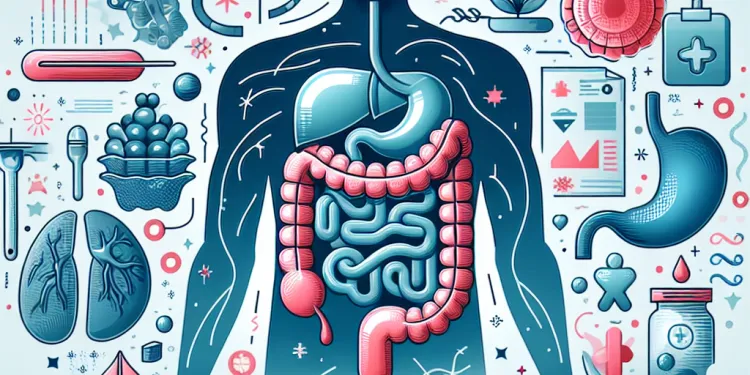
Are there any complications associated with Crohn's disease?
Relevance: 36%
-
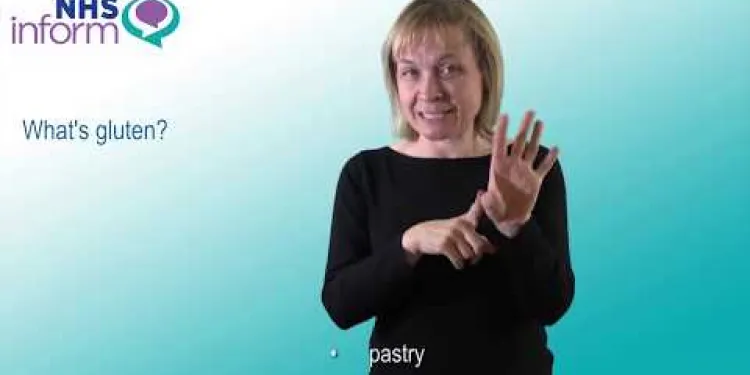
Coeliac disease
Relevance: 34%
-
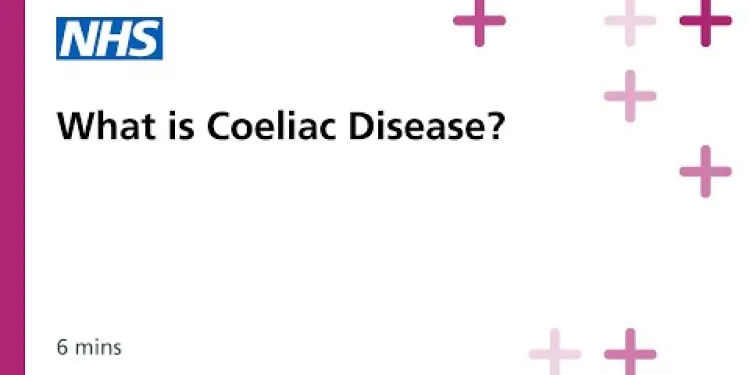
Coeliac Disease: Session 1: What is Coeliac Disease?
Relevance: 34%
-

What is Lyme Disease?
Relevance: 32%
-
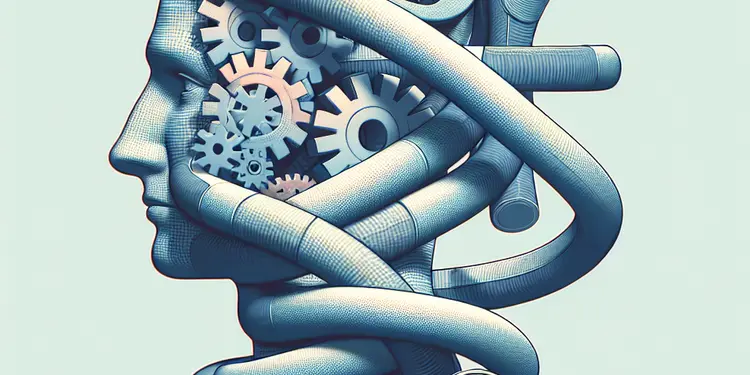
Is Huntington's disease fatal?
Relevance: 32%
-

Is Crohn's disease contagious?
Relevance: 32%
-
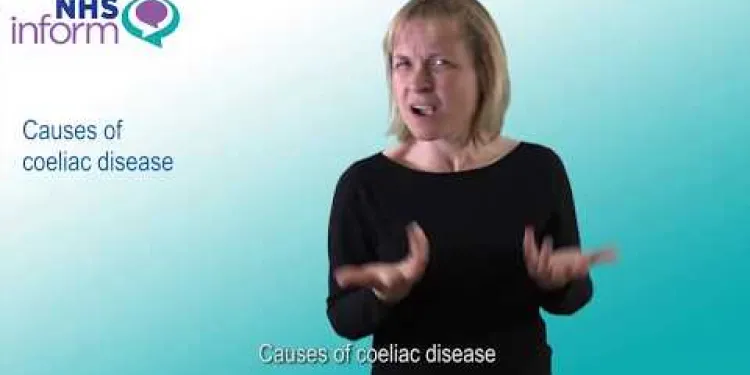
Causes of coeliac disease
Relevance: 32%
-

What is Huntington's disease?
Relevance: 32%
-
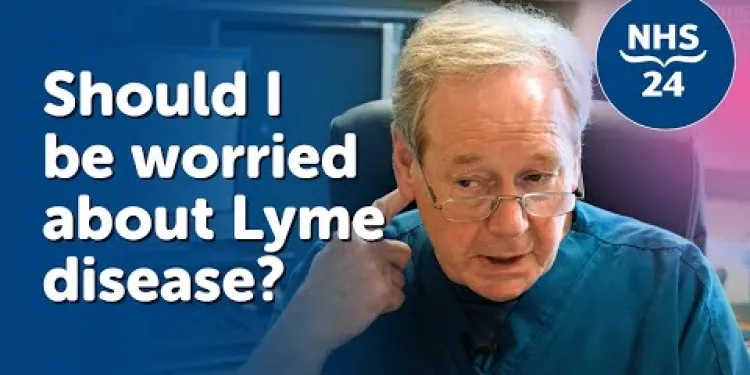
Lyme disease: What is it?
Relevance: 32%
-
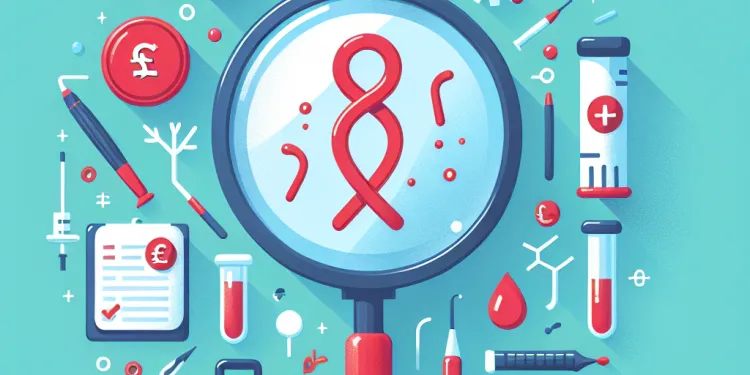
How is sickle cell disease diagnosed?
Relevance: 32%
-
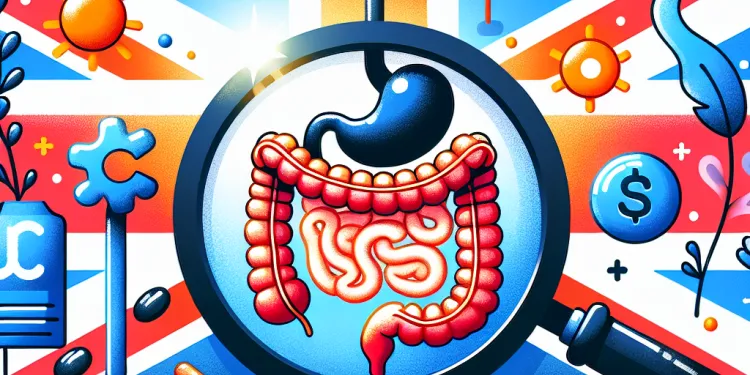
Is there a cure for Crohn's disease?
Relevance: 32%
-

What is Parkinson's disease?
Relevance: 32%
-

What are the symptoms of sickle cell disease?
Relevance: 32%
-

Is there a vaccine for Lyme disease?
Relevance: 32%
-

Is flesh-eating disease contagious?
Relevance: 32%
-
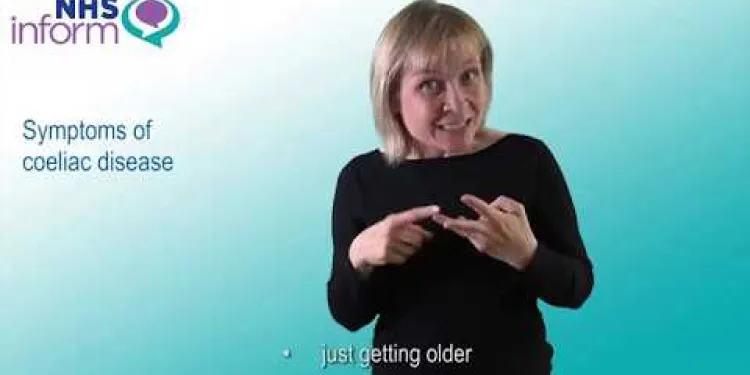
Symptoms of coeliac disease
Relevance: 31%
-

Do UK mosquitoes carry diseases?
Relevance: 31%
-
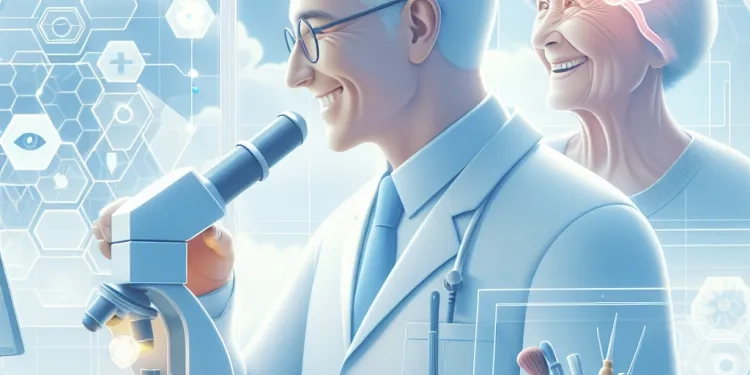
What is Alzheimer's disease?
Relevance: 31%
-

Do spiders in the UK carry diseases?
Relevance: 31%
-
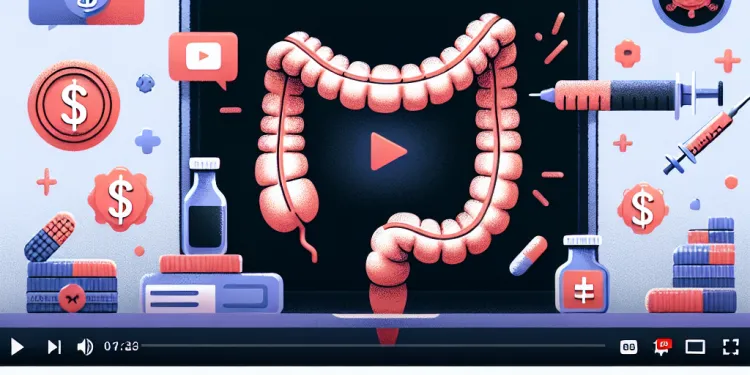
What causes Crohn's disease?
Relevance: 31%
-

What causes Huntington's disease?
Relevance: 30%
-
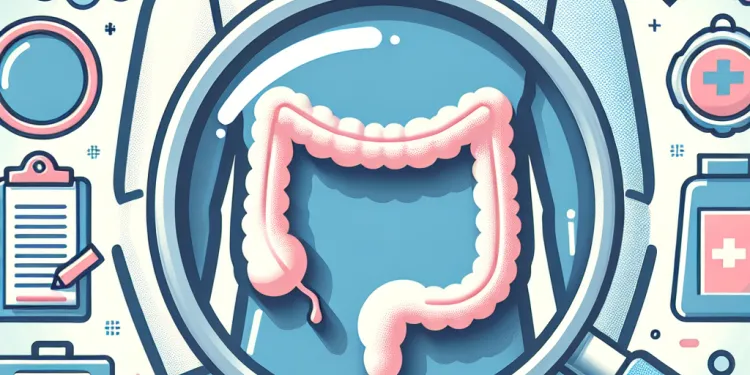
How is Crohn's disease diagnosed?
Relevance: 30%
-

Can Lyme disease be treated?
Relevance: 30%
-

How is Lyme disease transmitted?
Relevance: 30%
-
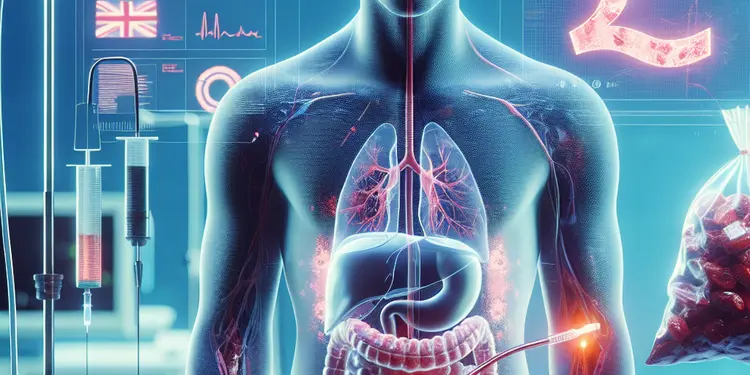
Can flesh-eating disease occur after common surgical procedures?
Relevance: 30%
-
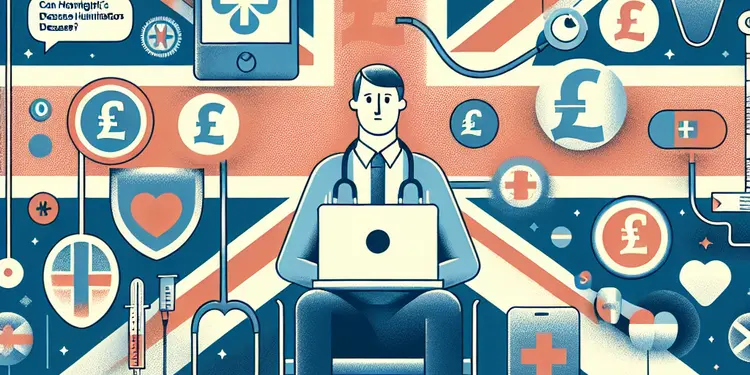
Can Huntington's disease be prevented?
Relevance: 30%
-

NHSGGC - What is Coeliac Disease?
Relevance: 30%
-
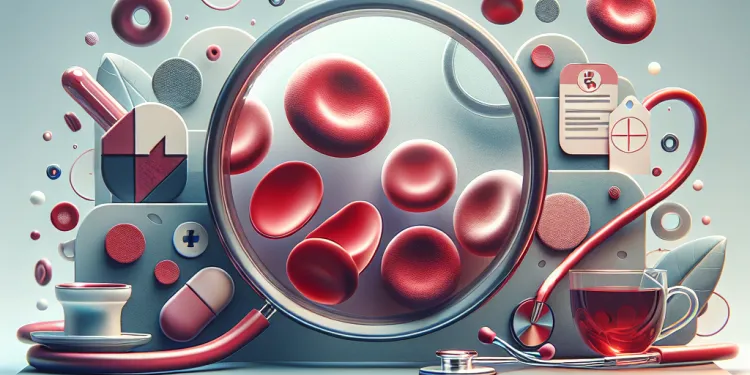
What is sickle cell disease?
Relevance: 30%
-

What is a flesh-eating disease?
Relevance: 30%
-

What are the symptoms of Huntington's disease?
Relevance: 30%
-

How is Huntington's disease diagnosed?
Relevance: 30%
Liver Disease
Introduction to Liver Disease
Liver disease encompasses a variety of conditions affecting the liver's functionality. The liver is a vital organ responsible for numerous crucial processes, including detoxification, protein synthesis, and digestion aid. In the United Kingdom, liver disease is a significant health concern, with increasing incidence rates over recent years.Types of Liver Disease
There are several types of liver disease, each with different causes and treatments:Hepatitis
Hepatitis is the inflammation of the liver, commonly caused by viral infections such as hepatitis A, B, and C. Hepatitis can also result from excessive alcohol consumption, certain medications, or autoimmune diseases.Fatty Liver Disease
This condition involves the accumulation of fat in the liver and is primarily categorized into two types: Non-Alcoholic Fatty Liver Disease (NAFLD) and Alcoholic Fatty Liver Disease (AFLD). While AFLD is linked to heavy alcohol use, NAFLD is often associated with obesity and metabolic syndrome.Cirrhosis
Cirrhosis is the progression of liver damage characterized by scarring (fibrosis) and impaired liver function. It can result from chronic liver conditions like hepatitis and fatty liver disease. Advanced cirrhosis can lead to liver failure, which requires immediate medical attention.Liver Cancer
Primary liver cancer originates in the liver, with hepatocellular carcinoma being the most common type. Liver cancer can develop due to chronic liver diseases, including hepatitis and cirrhosis. Secondary liver cancer occurs when cancer spreads to the liver from other body parts.Symptoms and Diagnosis
Symptoms of liver disease can vary but commonly include jaundice (yellowing of the skin and eyes), fatigue, weakness, weight loss, and abdominal pain. Early detection is crucial for effective treatment. Diagnosis involves blood tests, imaging scans (ultrasound, CT, MRI), and sometimes liver biopsy to assess liver health.Prevention and Treatment
Preventing liver disease involves adopting a healthy lifestyle, including: - **Moderating Alcohol Intake**: Reducing alcohol consumption can significantly lower the risk of developing alcoholic liver disease. - **Healthy Diet**: A balanced diet can help prevent obesity and fatty liver disease. - **Regular Exercise**: Physical activity aids in maintaining a healthy weight and reducing liver fat accumulation. - **Vaccinations**: Vaccinations are available for hepatitis A and B, which can protect against these viral infections. Treatment for liver disease depends on the type and severity. It may include lifestyle changes, medications, surgical procedures, or liver transplantation. Consulting healthcare professionals and regular check-ups are essential to managing liver disease effectively.Support and Resources
The NHS provides extensive resources and support for individuals affected by liver disease. Access to information, medical advice, and treatment options are available through various NHS services. Support groups and organisations, like the British Liver Trust, offer additional resources, including patient education and advocacy. For more detailed information and assistance, visit the NHS website or consult with your GP.Liver Disease
Introduction to Liver Disease
Liver disease means there is something wrong with the liver. The liver is important because it helps clean the blood, make proteins, and helps with digestion. In the UK, many people have liver problems, and this number is going up.Types of Liver Disease
There are different kinds of liver disease. They happen for different reasons and need different treatments:Hepatitis
Hepatitis means the liver is swollen. Viruses like hepatitis A, B, and C can cause it. Drinking too much alcohol, some medicines, or having certain health conditions can also cause hepatitis.Fatty Liver Disease
This happens when too much fat builds up in the liver. There are two types: - Non-Alcoholic Fatty Liver Disease (NAFLD), often due to being overweight. - Alcoholic Fatty Liver Disease (AFLD), which happens from drinking too much alcohol.Cirrhosis
Cirrhosis happens when the liver is damaged, and scar tissue forms. This makes it hard for the liver to work properly. It can result from long-term liver issues like hepatitis or fatty liver disease. Severe cirrhosis can lead to liver failure, needing quick medical treatment.Liver Cancer
Liver cancer starts in the liver. The most common type is hepatocellular carcinoma. It can be caused by long-term liver diseases like hepatitis and cirrhosis. Cancer can also spread to the liver from other body parts.Symptoms and Diagnosis
Symptoms of liver disease include yellow skin and eyes (jaundice), feeling very tired, weak, losing weight, and tummy pain. Finding liver problems early helps treat them better. Doctors use blood tests, imaging scans (like ultrasound, CT, MRI), and sometimes a liver biopsy to check liver health.Prevention and Treatment
To help avoid liver disease, you can: - **Drink Less Alcohol**: Drinking less can help prevent alcohol-related liver problems. - **Eat Healthy**: A good diet can stop weight gain and fatty liver. - **Exercise Regularly**: Moving more helps keep weight down and reduces liver fat. - **Get Vaccinations**: There are injections to protect against hepatitis A and B. Treatment depends on what kind of liver disease you have and how bad it is. It might mean changing your lifestyle, taking medicine, having surgery, or even a liver transplant. Regular doctor visits are important for managing liver disease.Support and Resources
The NHS has lots of help for people with liver disease. You can get information, medical advice, and treatment options through NHS services. Groups like the British Liver Trust offer help too, with education and support. For more information, visit the NHS website or talk to your doctor.Frequently Asked Questions
What are the common symptoms of liver disease?
Common symptoms of liver disease include jaundice (yellowing of the skin and eyes), abdominal pain and swelling, chronic fatigue, dark urine, pale stool color, nausea or vomiting, and loss of appetite.
What causes liver disease?
Liver disease can be caused by a variety of factors including viral infections (such as hepatitis), excessive alcohol consumption, obesity, certain medications, and genetic conditions.
How is liver disease diagnosed?
Liver disease is diagnosed through a combination of medical history, physical examinations, blood tests, imaging tests such as ultrasound or CT scans, and sometimes a liver biopsy.
Is liver disease preventable?
Some forms of liver disease are preventable, particularly those related to lifestyle choices. Avoiding excessive alcohol consumption, maintaining a healthy weight, and practicing safe sex to prevent hepatitis infections are important preventive measures.
What is the treatment for liver disease?
Treatment for liver disease depends on the specific diagnosis and can include lifestyle changes, medications, and in some cases, surgical procedures. For severe liver disease, a liver transplant may be necessary.
Can liver disease be cured?
Some liver diseases can be managed effectively with treatment, but not all can be cured. Chronic liver diseases often require ongoing management to prevent progression and complications.
What dietary changes should be made for liver disease?
A healthy diet for liver disease should include plenty of fruits, vegetables, lean proteins, and whole grains. It's important to avoid alcohol, reduce sugar and salt intake, and limit unhealthy fats.
Is there a connection between liver disease and alcohol consumption?
Yes, excessive alcohol consumption is a major cause of liver disease. Conditions such as alcoholic hepatitis and cirrhosis are directly related to alcohol intake.
What is fatty liver disease?
Fatty liver disease occurs when there is too much fat in the liver. It can be caused by obesity, high blood sugar, insulin resistance, or heavy alcohol use. Non-alcoholic fatty liver disease (NAFLD) is related to these factors, but not alcohol.
How serious is cirrhosis of the liver?
Cirrhosis is a serious condition where the liver becomes severely scarred over time due to prolonged injury or inflammation. This can lead to liver failure, which is life-threatening and may require a liver transplant.
Can liver disease lead to liver cancer?
Yes, chronic liver disease and cirrhosis are risk factors for developing liver cancer. Regular monitoring and early detection are important for those at higher risk.
How often should one get screened for liver disease?
Screening frequency depends on individual risk factors, such as a history of liver disease, alcohol use, or conditions like hepatitis. Consult a healthcare provider to determine an appropriate screening schedule.
Can liver disease be asymptomatic?
Yes, in its early stages, liver disease may not present any symptoms. It's often detected through routine blood tests or imaging for other conditions.
What is hepatitis and how does it affect the liver?
Hepatitis is inflammation of the liver, commonly caused by viral infections (Hepatitis A, B, C). It can lead to liver damage, scarring, and cirrhosis if not treated appropriately.
What is the role of lifestyle changes in managing liver disease?
Lifestyle changes such as eating a healthy diet, reducing alcohol intake, exercising regularly, and avoiding drugs that harm the liver are critical in managing and preventing the progression of liver disease.
What signs show that the liver is sick?
The liver is a big organ in your body. It can get sick. Here are signs that the liver might be sick:
- Tummy hurts
- Feeling very tired
- Yellow skin or eyes (called jaundice)
- Feeling sick in your tummy (nausea)
- Getting bruises easily
If you think something is wrong, talk to a doctor. A doctor can help.
You can use pictures or videos to learn more about liver sickness.
Ask for help if you find reading hard. Friends, family, or a teacher can help explain.
Here are some signs that someone might have liver problems:
- Skin and eyes look yellow.
- Tummy hurts or is swollen.
- Feeling tired all the time.
- Wee (urine) looks very dark.
- Poo (stool) is very light in color.
- Feeling sick or throwing up.
- Not feeling hungry.
If you need help reading, it can be good to use tools like text-to-speech, which can read the text out loud for you. A family member or teacher might also be able to help explain things in a way that is clearer for you.
What makes your liver sick?
Liver disease means something is wrong with the liver. It can happen for different reasons. Here are some causes:
- Viruses that make you sick, like hepatitis.
- Drinking too much alcohol.
- Being very overweight.
- Taking certain medicines.
- Problems you are born with, called genetic conditions.
If this is hard to understand, you can use a reading tool to help you. Reading out loud or asking someone to explain can also make it easier.
How do doctors find out if you have liver disease?
Doctors can check if your liver is healthy by doing some tests. Here are some ways they find out:
- Blood tests: Doctors take a small amount of your blood. They look at your blood to see how your liver is working.
- Scans: Doctors might use special machines, like an ultrasound, to take pictures of your liver. These pictures help them see if your liver looks healthy.
- Biopsy: Sometimes, doctors need to take a tiny piece of your liver. They look at it under a microscope to check for disease.
If you have trouble understanding, you can ask someone to explain it in a different way or use pictures to help. You can also use tools like text-to-speech to read the information aloud.
Doctors find out if you have liver disease by doing a few things. They ask about your health history and check your body. They do blood tests and use special machines like ultrasound or CT scans to look inside your body. Sometimes, they might need to take a tiny piece of your liver to look at it closely.
Here are some helpful tools:
- Ask your doctor to explain things in a simple way.
- Use pictures or videos to understand better.
- Write down any important questions you have.
Can you stop liver disease from happening?
Yes, you can do things to help stop liver disease. Here are some tips:
- Eat healthy foods: Try to eat lots of fruits and vegetables. They are good for your liver.
- Don't drink too much alcohol: Drinking a lot can hurt your liver.
- Exercise: Moving your body helps keep your liver healthy.
- Be careful with medicines: Only take medicines the way the doctor says.
- Stay away from harmful chemicals: Some chemicals can hurt your liver.
If you find reading hard, try using a ruler or your finger to follow the words. You can also ask someone to read with you or use audio books.
Some liver problems can be stopped before they start. You can help by doing these things:
1. **Don't drink too much alcohol.**
2. **Keep a healthy weight.**
3. **Stay safe when having sex to avoid getting sick from hepatitis.**
These tips can help keep your liver healthy.
How can doctors help if your liver is sick?
If your liver is not well, doctors can help in different ways. They can give you medicine or tell you to change what you eat.
Sometimes, doctors might ask you to stop drinking alcohol or to take a break from certain foods.
If the liver is very sick, doctors might do a special operation.
It is important to see a doctor so they can decide the best way to help you.
Try using pictures or asking someone you trust to explain things to make this easier to understand.
If your liver is not healthy, doctors can help in different ways. What they do depends on what is wrong with your liver. They might ask you to change what you eat or how you live. There are also medicines that can help. Sometimes, if things are really bad, doctors might need to do an operation. If your liver is very sick, you might need a new liver. This is called a transplant.
Can liver disease get better?
Liver disease means your liver is not working well. Some types of liver disease can get better with the right care and treatment.
If you think you have liver problems, go see a doctor. Doctors can help with medicine and advice on eating and drinking.
Sometimes, making changes, like eating healthy food and not drinking alcohol, can help your liver heal.
Ask your doctor how best to take care of your liver. They can help you find the right support.
Some liver problems can be helped with medicine, but not all can be completely fixed. If a liver problem lasts a long time, it needs special care to stop it from getting worse or causing other problems.
What food changes should you make for liver disease?
If you have liver disease, changing what you eat can help. Eat healthy food to keep your liver safe.
Here are some tips:
- Eat lots of fruits and veggies.
- Choose whole grains like brown rice or wholemeal bread.
- Eat lean meat like chicken or fish.
- Stay away from fatty, fried, or sugary foods.
- Drink lots of water.
- Try not to drink alcohol.
- Ask a doctor or dietitian for advice.
Remember, these are just ideas. Talk to a healthcare person for more help.
If you want to take care of your liver, eat lots of fruits and vegetables. Try to have some lean meat like chicken or fish. Whole grains like brown bread and rice are good too. Don't drink alcohol. Eat less sugar and salt, and stay away from bad fats like those in fried foods.
Does drinking alcohol hurt your liver?
Drinking too much alcohol can hurt your liver. It can cause liver problems like alcoholic hepatitis and cirrhosis. These problems happen when you drink a lot of alcohol.
If you find reading hard, you can use tools like text-to-speech to listen instead. Breaking up information into smaller chunks can also help you understand better.
What is fatty liver disease?
Fatty liver disease happens when too much fat builds up in the liver. The liver is a very important part of the body. It helps clean the blood and gives us energy.
How does it happen?
Sometimes, eating too much food or drinking too much alcohol can make fat stay in the liver. This can make the liver sick.
What are the signs?
A person with fatty liver disease might feel very tired or have pain on the right side of their tummy.
How can you help your liver?
Eating healthy foods, like fruits and vegetables, and not drinking alcohol can help keep the liver healthy.
Tools and techniques
Use pictures or videos to learn more. Ask a doctor or nurse for help if you have questions.
Fatty liver disease is when there is too much fat in the liver. This can happen if someone is very overweight, has high sugar in their blood, problems using insulin, or drinks a lot of alcohol. Non-alcoholic fatty liver disease (NAFLD) happens because of these reasons, but not from drinking alcohol.
How bad is liver damage called cirrhosis?
Cirrhosis is when the liver is very sick. It means the liver has a lot of scars and can't work properly. This can make people feel very sick.
If someone has cirrhosis, they should go to the doctor. Doctors can help by giving medicines or advice on how to feel better.
Here are some ways to help someone with cirrhosis:
- Eat healthy food.
- Don't drink alcohol.
- Rest when you feel tired.
- Visit the doctor for check-ups.
It's important to get help early to take care of your liver.
Cirrhosis is a bad illness. It happens when the liver gets lots of scars. This can happen because the liver is hurt or swollen for a long time. If the liver gets too sick, it might stop working. This is very dangerous, and someone might need a new liver.
Can liver disease cause liver cancer?
The liver is an important part of your body. Sometimes it can get sick, this is called liver disease. If the liver is sick for a long time, it can sometimes turn into cancer.
It's important to talk to a doctor if you think you have liver disease. They can help you find the right treatment. Asking someone you trust to go to the doctor with you can also help you feel supported.
Yes, having liver disease for a long time or a damaged liver can make it more likely to get liver cancer. It's important to check your liver often and catch any problems early if you have liver problems.
How often should you check your liver for problems?
How often you need to get checked depends on your health and risks. If you have liver problems, drink alcohol, or have illnesses like hepatitis, talk to a doctor. They will tell you how often you should have tests.
Can you have liver disease without feeling sick?
Sometimes people have liver disease and don't feel sick. This is called "asymptomatic." It means you might not notice any signs at first.
Here are some things that can help if you want more information:
- Ask a doctor. They can tell you more about your liver.
- Use pictures and diagrams. They can make it easier to understand.
- Watch videos about liver health. Videos can show you how to take care of your liver.
Sometimes, when people have liver problems at the beginning, they don't feel anything wrong. Doctors might find the problem when they do blood tests or take pictures of the body for other reasons.
What is hepatitis and how does it affect the liver?
Hepatitis is when the liver gets sick.
The liver is like a filter that cleans blood. Hepatitis makes it hard for the liver to do its job.
If the liver is sick, it can't clean the body well.
Tools that can help:
- Ask a doctor or nurse to explain hepatitis with pictures.
- Watch a video about hepatitis for kids.
Hepatitis is when the liver gets swollen. This can happen because of viruses called Hepatitis A, B, or C. If we don’t treat it, the liver can get hurt and scarred.
How do changes in daily habits help with liver illness?
To help your liver stay healthy, you can do some simple things:
- Eat good food that is healthy for you.
- Drink less beer and other alcohol drinks.
- Do some exercise often, like walking or playing a sport.
- Stay away from drugs and things that can hurt your liver.
These steps can keep your liver strong and stop it from getting sick.
Useful Links
This website offers general information and is not a substitute for professional advice.
Always seek guidance from qualified professionals.
If you have any medical concerns or need urgent help, contact a healthcare professional or emergency services immediately.
- Ergsy carfully checks the information in the videos we provide here.
- Videos shown by Youtube after a video has completed, have NOT been reviewed by ERGSY.
- To view, click the arrow in centre of video.
- Most of the videos you find here will have subtitles and/or closed captions available.
- You may need to turn these on, and choose your preferred language.
- Go to the video you'd like to watch.
- If closed captions (CC) are available, settings will be visible on the bottom right of the video player.
- To turn on Captions, click settings .
- To turn off Captions, click settings again.
More Items From Ergsy search
-

Liver disease | NHS
Relevance: 100%
-

Liver transplant - Patient experience - Part 1 (Colin)
Relevance: 61%
-

Liver transplant - Patient experience - Part 2 (Lynne)
Relevance: 57%
-

Who is at risk for flesh-eating disease?
Relevance: 43%
-

What are the symptoms of Marburg virus disease?
Relevance: 42%
-

What is the most common disease transmitted by blood transfusion?
Relevance: 41%
-

What are the complications of sickle cell disease?
Relevance: 41%
-

What is Mitochondrial disease?
Relevance: 38%
-

What diseases can be spread by blood transfusions?
Relevance: 36%
-

Are there any complications associated with Crohn's disease?
Relevance: 36%
-

Coeliac disease
Relevance: 34%
-

Coeliac Disease: Session 1: What is Coeliac Disease?
Relevance: 34%
-

What is Lyme Disease?
Relevance: 32%
-

Is Huntington's disease fatal?
Relevance: 32%
-

Is Crohn's disease contagious?
Relevance: 32%
-

Causes of coeliac disease
Relevance: 32%
-

What is Huntington's disease?
Relevance: 32%
-

Lyme disease: What is it?
Relevance: 32%
-

How is sickle cell disease diagnosed?
Relevance: 32%
-

Is there a cure for Crohn's disease?
Relevance: 32%
-

What is Parkinson's disease?
Relevance: 32%
-

What are the symptoms of sickle cell disease?
Relevance: 32%
-

Is there a vaccine for Lyme disease?
Relevance: 32%
-

Is flesh-eating disease contagious?
Relevance: 32%
-

Symptoms of coeliac disease
Relevance: 31%
-

Do UK mosquitoes carry diseases?
Relevance: 31%
-

What is Alzheimer's disease?
Relevance: 31%
-

Do spiders in the UK carry diseases?
Relevance: 31%
-

What causes Crohn's disease?
Relevance: 31%
-

What causes Huntington's disease?
Relevance: 30%
-

How is Crohn's disease diagnosed?
Relevance: 30%
-

Can Lyme disease be treated?
Relevance: 30%
-

How is Lyme disease transmitted?
Relevance: 30%
-

Can flesh-eating disease occur after common surgical procedures?
Relevance: 30%
-

Can Huntington's disease be prevented?
Relevance: 30%
-

NHSGGC - What is Coeliac Disease?
Relevance: 30%
-

What is sickle cell disease?
Relevance: 30%
-

What is a flesh-eating disease?
Relevance: 30%
-

What are the symptoms of Huntington's disease?
Relevance: 30%
-

How is Huntington's disease diagnosed?
Relevance: 30%


